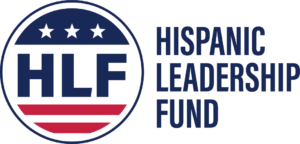WASHINGTON, D.C.–Recently the U.S. Department of the Treasury and the Internal Revenue Service issued final regulations that protect the First Amendment rights of public policy organizations like the Hispanic Leadership Fund (HLF).
The regulation involves the portion of nonprofit tax returns known as a “Schedule B” form, which asks nonprofits to list private information from their donors including names, addresses, and other sensitive data. Over the years donors to various causes have had their information leaked or exposed unlawfully which has made them targets for harassment and other abuse, including losing their jobs in some instances.
HLF president Mario H. Lopez issued the following statement regarding the recent regulatory change:
For over twelve years, the HLF has amassed a proven record of successful communication and advocacy campaigns promoting public policy that strengthen liberty, opportunity, and prosperity for all Americans. Protecting the First Amendment rights to speech, assembly, and petitioning of the government are crucial to accomplishing this goal. The recent change helps ensure that the organizations like ours from across the political spectrum can carry out their work without government interference or targeting from those who want to silence opposing views.
The IRS itself has recognized that donor names and addresses of should remain private as the law requires. The agency had to use significant resources to stay in compliance. Unfortunately, that has not prevented information from improperly being made public. Importantly, the IRS has never claimed that such sensitive information is required for it to enforce any applicable tax laws
Protecting donor information has its roots in a Supreme Court case from the Jim Crow era. A unanimous court ruled in NAACP v. Alabama (1958) that government officials, who wanted to silence the NAACP, couldn’t force it to hand over information about their membership, because that would expose them to retaliation and chill the group’s Constitutionally-protected activity. “Inviolability of privacy in group association may in many circumstances be indispensable to preservation of freedom of association, particularly where a group espouses dissident beliefs,” wrote the court.

